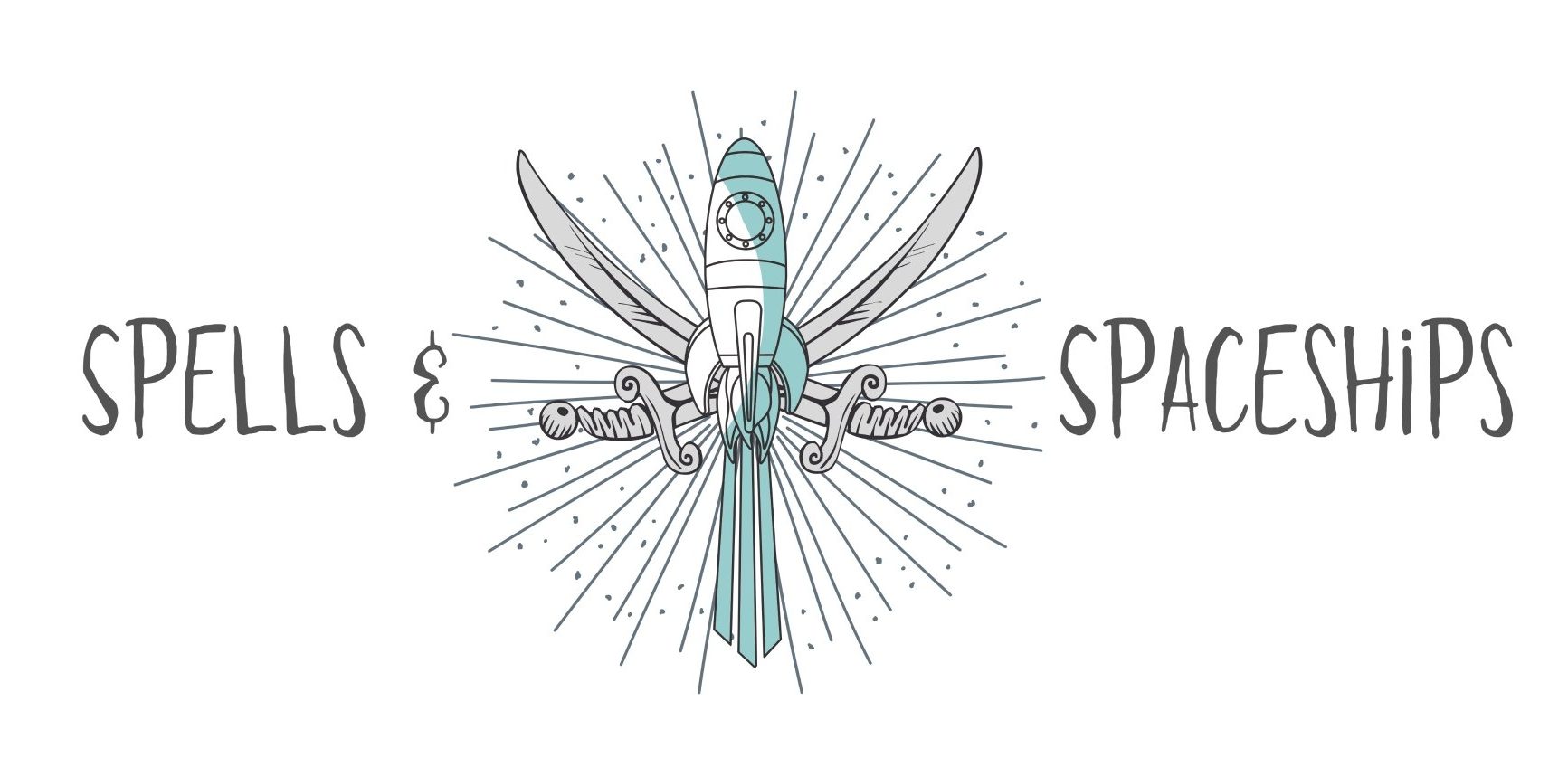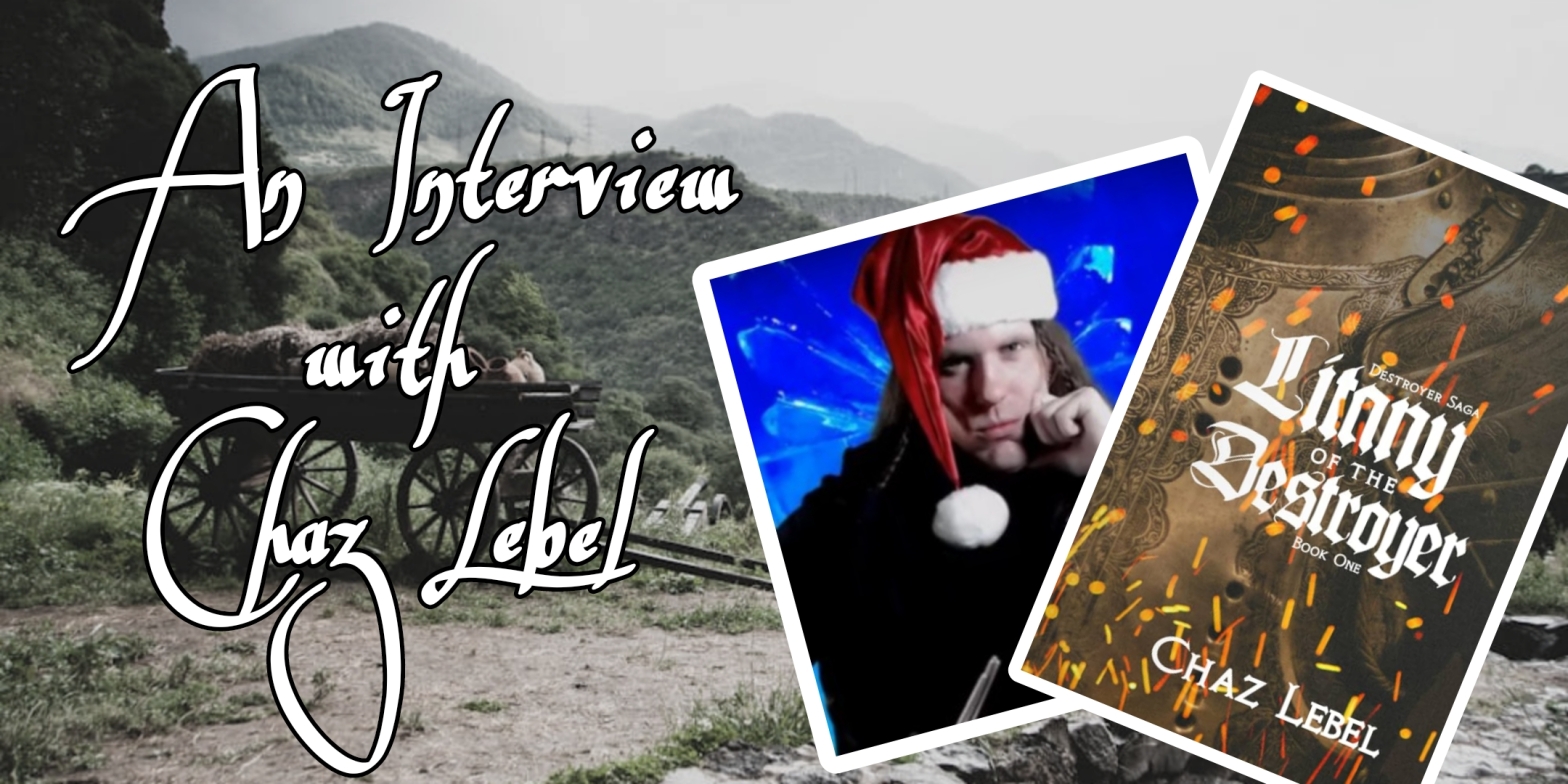Hi folks, it’s a real pleasure today to bring you an interview with Chaz Lebel, author of Litany of the Destroyer. This is a book I enjoyed tremendously and I was struck with just how much craft, passion and knowledge that has been put into this work.
It’s a real tragedy how many awesome self published works just don’t get the spotlight they deserve and I really hope my review and these brilliant interview answers from Chaz will encourage you to grab a copy of the book. If you like historical fiction, action, adventure, horror and a thought provoking read, you won’t be disappointed.
Without further ado, I present to you our interview. Enjoy!
Hi Chaz, a very warm welcome to Spells & Spaceships!
Thanks so much! Very happy to be here!
First off, how are you doing? How has this year treated you so far?
Honestly, this year’s been a beast for a number of reasons, but things are already much better. Your review was a very welcome boost after a challenging couple of months, though! Much appreciated.
It really was my absolute pleasure! I loved your novel. What was it about the time period that appealed to you; was it always going to be the 14th century?
I’ve loved medieval Europe my entire life. When I was about four years old, I remember getting bored of my Little Golden Books and picking through the adult shelf for something else to read. Grandma had an encyclopedia of warfare through the ages (it was one of the few books that had pictures) and when I found the medieval chapter, I think I experienced something close to religious epiphany. I spent hours, day after day, for years, staring at the same grainy black-and-white images of swords and armor, the coolest and most beautiful things I’d ever seen in my life. That feeling of wonder and fascination has never left me.
Grandma also had a copy of The Joy of Sex, but that one didn’t leave as much of an impression. Maybe I should have paid more attention.
Destroyer actually wasn’t the first story I wrote in this world. The first was a serial novel called Litany of Fire set in 13th century Ireland. (It’s unavailable at the moment. Back then, I prioritized a weekly deadline over quality, up to and including publishing the rough draft of a chapter I wrote while half-delirious with the worst fever of my life. LoF is still important to me though. Once I finish Galien’s story, I intend to go back and give it the treatment it deserves.) The main character, Eoghan, was not a good person. That was the point. The crux of the narrative was about confronting his own sins as he sought to avoid damnation. I was working on a chapter where, back against the wall, Eoghan sacrifices innocent people to get the upper hand on the bad guys. That’s when I realized he wasn’t the sort of hero you could feel good about rooting for.
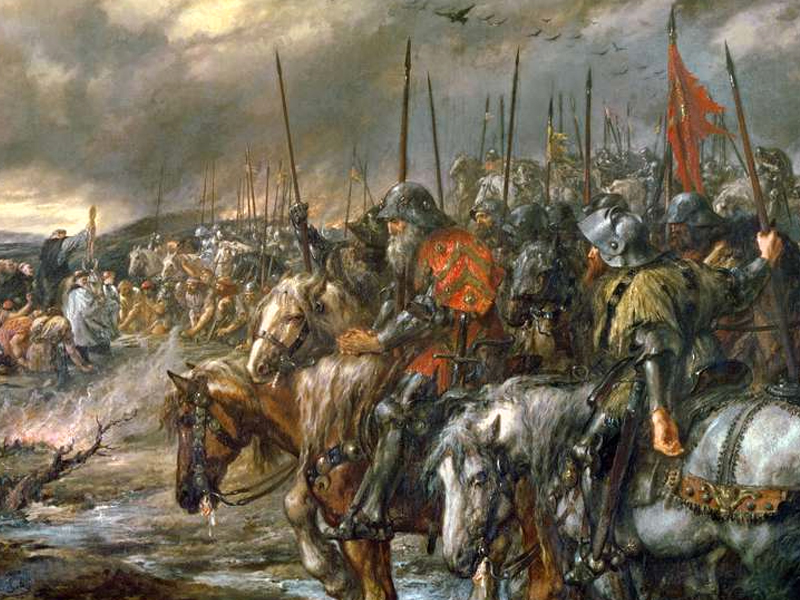
I wanted my next story to feature someone readers could side with, and I settled on the idea of a knight–the archetype of the medieval hero–even if historical knights weren’t so virtuous. I didn’t have a setting in mind, until one day I watched a documentary about the Hundred Years War. Originally, I thought there might be fertile ground for storytelling following the Treaty of Bretigny, but as I started digging into the time period, it was the remorseless savagery of the Battle of Caen that really stuck out to me.
Well I certainly think you nailed that! I believe you’ve captured so much nuance about the time period in general that really ramped up the authenticity – your world is especially believable because of the historical accuracy. How much research did you have to undertake to achieve this?
Verisimilitude was really important for me. I wanted to be so thorough that someone with a Medieval History degree would be able to read the book without breaking their sense of immersion. I didn’t quite reach that point, but it was my guiding ideal.
Destroyer took me three years from start to finish, and I honestly couldn’t tell you how much of that was divided between research and actually putting words on the page. The aforementioned documentary didn’t actually help me, beyond providing me with a list of names and dates to look up. In fact, the more I learned, the more I realized most of the documentary was wrong. A lot of valuable information came from the books A Knight in History by Frances Gies, Life in a Medieval Village by Frances and Joseph Gies, and A Distant Mirror by Barbara W. Tuchman, and of course, endless strings of Google searches. Any time I wasn’t certain about something, no matter how small a detail, I punched it into Google. Like I said, three years.
At some point, I did learn that sometimes one has to wrinkle accuracy just slightly for the sake of the narrative, which is, after all, a novel’s chief concern. (See Galien riding a destrier into the countryside) Some things just sound strange to a modern audience, or are difficult to explain without breaking the flow of the narrative, though I did try to keep those to a minimum.
Were you inspired by any other artistic work before/during your writing? (Other books, media, art, cinema etc)
Destroyer’s biggest literary influence was The Name of the Wind by Patrick Rothfuss. I think it wears it most prominently in Part 2, where I used The Kingkiller Chronicle’s “story within a story” concept to differentiate the past timeline from the current one. It was also a driving force behind a lot of the prose. Rothfuss plays the English language like a musical instrument. I remember reading some passages in the NotW and being utterly enraptured and humbled by their majesty. I wanted to attempt the same.
I was listening to tons of metal at the time, like I usually do. The imagery of Apollyon’s Communion was directly inspired by Behemoth’s music video for “Ov Fire and the Void.” I rewatched some of their videos recently, and while it wasn’t a deliberate inspiration, I’m honestly wondering if “Blow your Trumpets, Gabriel” didn’t also sink into my subconscious somewhere along the line.
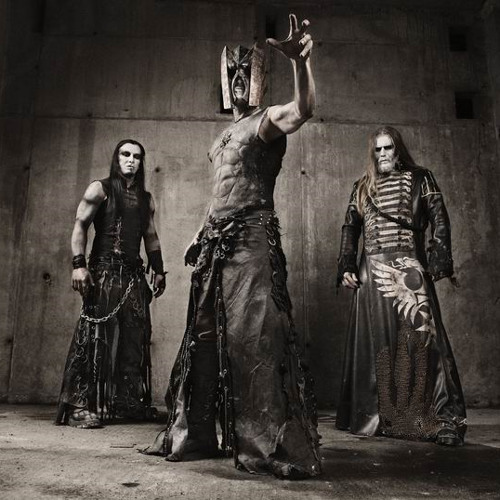
The biggest influence on Destroyer, however, was the religious trauma I dealt with at a young age. It’s difficult to describe succinctly but suffice it to say my personal history with religion is complicated and painful. From the ages of 11 to about 15, I was certain–utterly certain–that I was going to Hell to be tortured forever, and that I could die and be whisked away at any moment. I don’t remember ever making a conscious decision to put that fear of damnation onto Galien, I think it came of its own volition somewhere in the massacre at Caen and struggling with his own morality. Galien doesn’t actually have a demon watching him, waiting to snatch him up, but that’s what it felt like to me as a child, cowering by my bedside every night as I prayed for forgiveness to a God who was keeping score every minute of every day. I think that’s why I’m drawn to this kind of imagery in my adult life. It’s sort of like putting a rattlesnake in a snowglobe, if you will. I can take this thing that hurt me and hold it in my hand, and analyze it at a safe remove.
You can certainly see that in your book and I think it’s really important to talk about and get out there. In fact there are a lot of takeaways and thought provoking themes. Was there a particular message you wanted to put across?
There’s a Susan B. Anthony quote that goes, “I distrust those people who know so well what God wants them to do, because I notice it always coincides with their own desires.”
Have you ever seen a hate preacher preach? What I find most chilling about them isn’t the pastors themselves–it’s their audience. These guys go on massive, breathless screeds about marginalized people, and their audience cheers. These priests howl about criminalizing and doing violence against their fellow human beings–people who are ostensibly God’s children–and because they slap Jesus’s name on the end of it like a cheap bumper sticker, it somehow makes their tirade holy and righteous, answered with hoots and choruses of “Amen!”
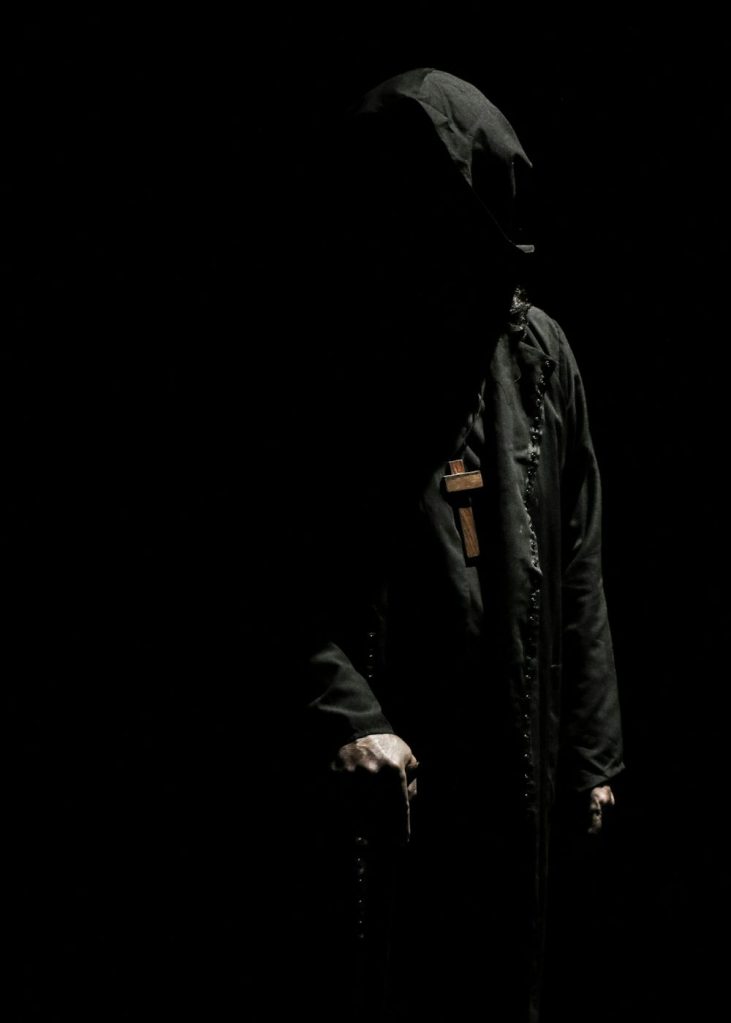
If people take anything from Destroyer, I want them to think about the theology they follow instead of blindly absorbing it. The Gray Monk is that exact willing blindness given elemental form, and the dichotomy plays out between Galien and Godfrey. Godfrey is a slave to the traditional morality he’s been given his entire life, and it’s used to manipulate him. Galien gives up everything to follow what he knows is right, and he’s able to see the truth of things.
To be clear, I don’t think religion itself is evil, but I think religion gets used for evil constantly, and very few people are willing to question it. I’ve spent my entire life watching the religion that hurt me be used to hurt other people. As an American, I’ve watched LGBTQ people fight for the right to love another consenting adult, and I’m currently watching trans people fight for the right to just exist. As the world dies beneath our feet, I see attempts to save it struck down because “God wants the world to die and Jesus is going to come back and give us all cloud mansions any day now, this time for real guys.” I see genocide and apartheid get defended and funded because they need its landmass for the apocalypse. And every day, in a country where people struggle to afford housing and healthcare, I see those prejudices being inflamed to elect politicians that will suppress our wages, gut our social safety nets, and funnel ever more of our tax dollars to billionaires and corporations.
Literally anyone can say they work for God. If you’re not willing to question it, you might end up doing a demon’s bidding instead.
You obviously put a tremendous amount of work into writing the book itself; how did you find the overall experience of writing and then self publishing your novel?
Honestly, when writing Destroyer, I pushed myself a bit too hard. As I touched on earlier, I finished several stories and even a couple novels before Destroyer, but they just weren’t at the level of quality they needed to be. To dedicate so many years of my life to writing and still have nothing to show for it, it hurt. I drove myself to apocalyptic levels of burnout, and combined with obsessive perfectionism and a commitment to historical pedantry, I don’t have to tell you it wasn’t a good combination. I paid the price for my obsession and it’s not a mistake I intend to make again. At the same time, however, I think it was a fire I needed to pass through in order to heal from whatever destructive mindset goaded me on in the first place. Now I have something I can hold up and proclaim with my full chest, “I made this!” and I can be ok with myself.
Self-publishing is fantastic, but it has its own challenges. As major publishing houses continue to prioritize “products” like celebrity biographies they can sell to as many people as possible, I don’t think something as subversive and critical as Destroyer would have had a snowball’s chance with traditional publishing. However, it’s a battle to find readers. The one thing no one ever tells you about self-publishing is that you’re actually starting your own tiny publishing company, and like any business, it requires money to run successfully. A lot of the most successful self-published authors dump thousands of dollars on book covers and social media marketing, and without a sizable enough budget to compete, sometimes it feels like I’ve traded one set of gatekeepers for another. Sometimes I consider putting something together to query with, but even if I land an agent it could be years before it gets picked up by a publisher if at all. My stories mean something to me, and I don’t have a disposable one to gamble on ending up in some publishing house purgatory. I’d rather they at least exist, even if very few people discover them. Reviewers like you are so far the best way I’ve found to even the odds, but even then, convincing reviewers to gamble their time on a self-published author with no name recognition is a challenge. Again, gatekeepers for gatekeepers. Either way, you’ve done both me and Destroyer a great service in just cracking the cover.
So, book 2. Is it is happening? What can you tell us? Or maybe you’re working on something else?
At the moment, Book Two is titled Litany of the Deceiver. The rough draft was finished. I say “was” because I had originally intended The Destroyer Saga to be four books, book three being a prequel set in Constantinople that details the origins of the Gray Monk and the Cult of Apollyon, which sets the stage for the climax in Book 4. Recently I’ve considered the story might flow better if I insert the prequel narrative into Book 2, sort of the way I did with Galien’s backstory in Destroyer. Whether or not I decide to go through with it depends on how much it bloats the book and whether being locked into available PoV characters becomes too restrictive, but I want to experiment with it. Of course, this means more drafting and more research, so let’s call the rough draft about 70% done at this point. I’m hoping to have it ready to go by next year.
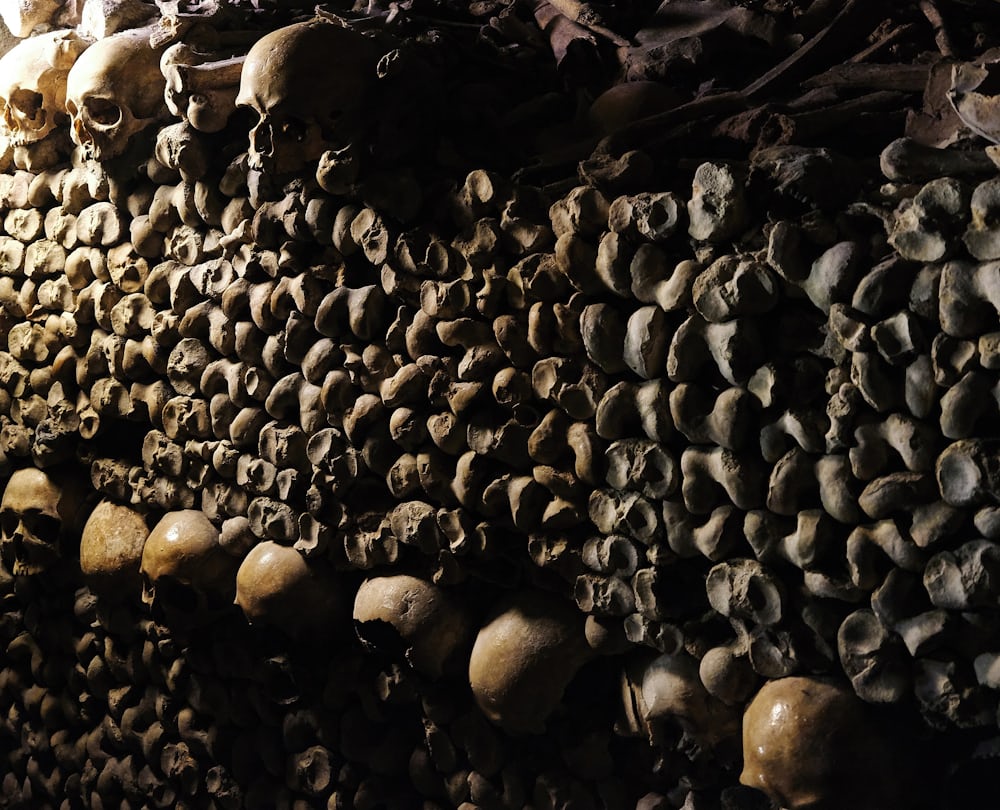
I can tell you that Galien and Emi have tracked the Cult of Apollyon to Paris. Both of them carry deep emotional wounds from the events of Destroyer’s final chapter, and they’ll be fighting their internal demons as much as the outer ones. Meanwhile, Renault is in hot pursuit, and Galien and Godfrey still don’t realize they’re on a crash course to meet on opposite ends of their swords. The heroes might have some new allies to help even the odds, but only if they decide to trust a denizen of Hell. Before the end, Galien will come face to face with the Archdevil Apollyon himself.
I do have other projects in the pipeline. At the moment I’m working on an epic fantasy satire novella, about a prophecy that states the worst possible guy for the job will save the world with a decorative sword. I intend to submit it to the SFINCs (Speculative Fiction Independent Novel Competition) at some point, though I doubt it will be ready by this year’s deadline. I’m also working on a novella set in the Litany universe during the sack of Constantinople in the Fourth Crusade, that I hope will be a cheaper and less time-consuming entry point to entice new readers into the world. The rough drafts for both of those have been finished and will probably be available before Deceiver. I’ve completed a few short stories for traditional short fiction outlets to generate some extra funds for promoting Destroyer. I’ve got a couple floating around at various magazines and anthologies. No bites yet, but when I do they’ll be announced on my social media.
Can’t wait! Finally, what was the last book you read that you couldn’t put down?
The Eyes of The Shadow by Walter B. Gibson. I’m the kind of dork that likes jumping down esoteric rabbit holes, and the original 1930’s The Shadow pulp novels have been my latest hyperfixation. They’re not perfect. A lot of the language hasn’t aged well, and sometimes the narratives hinge on convenience or The Shadow making an extraordinary leap in logic, but I find them to be compelling detective stories in their own right, especially since I’m fairly certain Gibson was publishing his rough drafts. I’m just as much a nerd for the craft of writing as I am for writing itself; the guy put out two novel-length works a month for decades, and marveling at that kind of superhuman feat lets me overlook a lot of the shortcomings.
Thanks for your time Chaz and I hope you enjoyed the interview! As a last sentence, could you tell potential readers in one short sentence why they should read your book!?
It’s a heavy metal medieval horror novel written with passion, conviction, and a deep fixation on historical accuracy.
About Chaz

“Chaz Lebel is just some schmuck with a keyboard. He lives in Texas with his cockapoo Bailey and his existential dread.”
